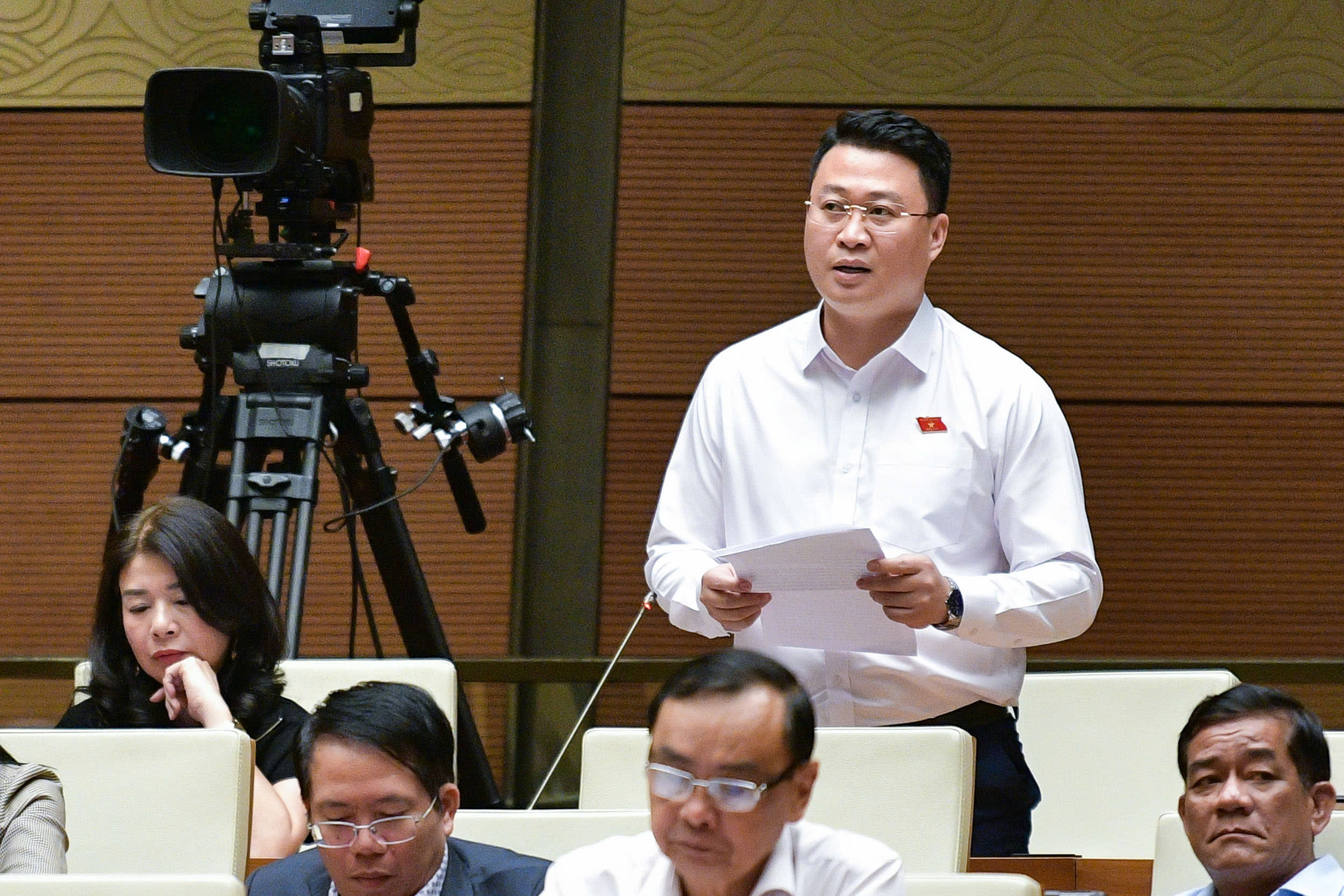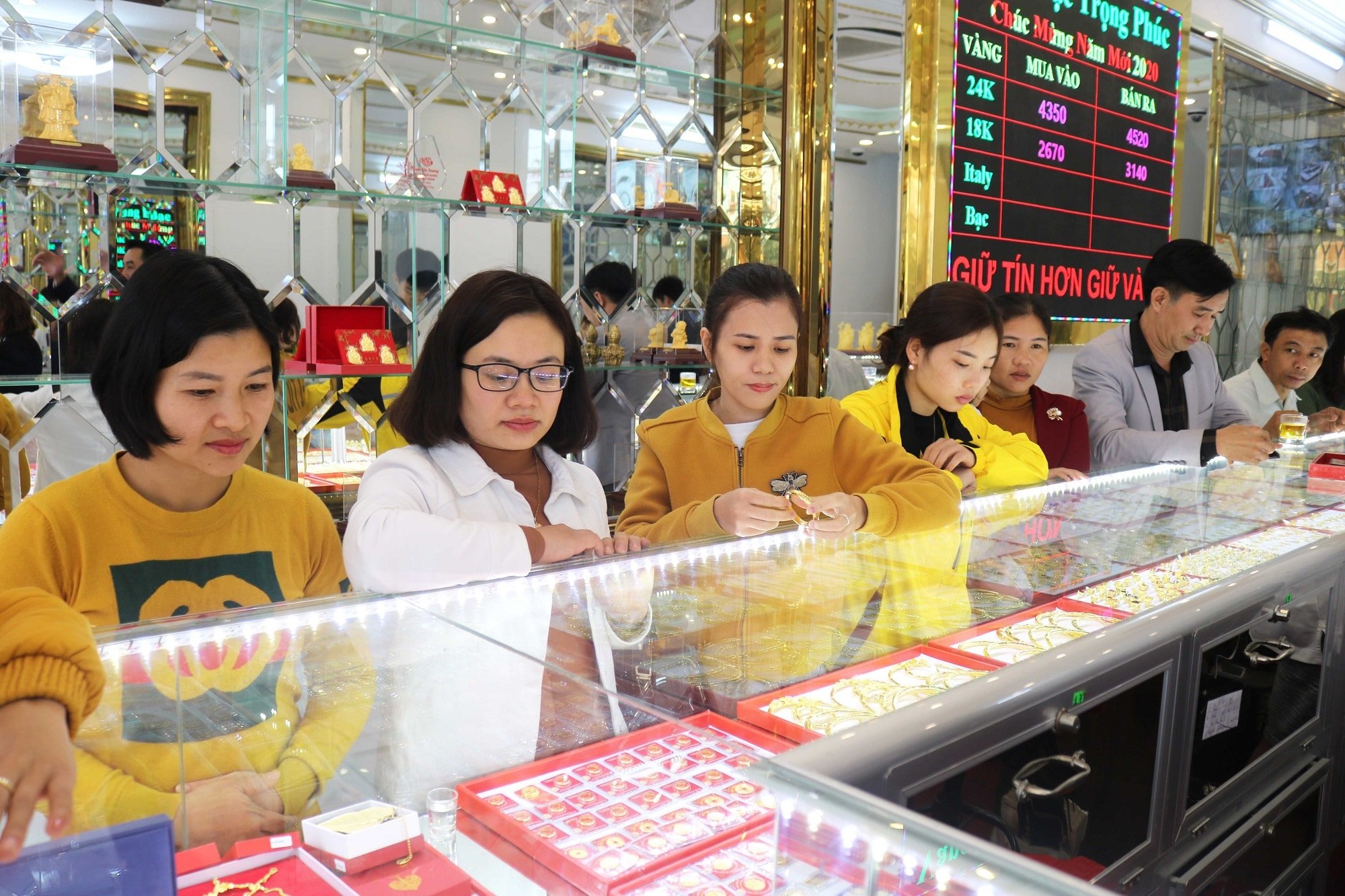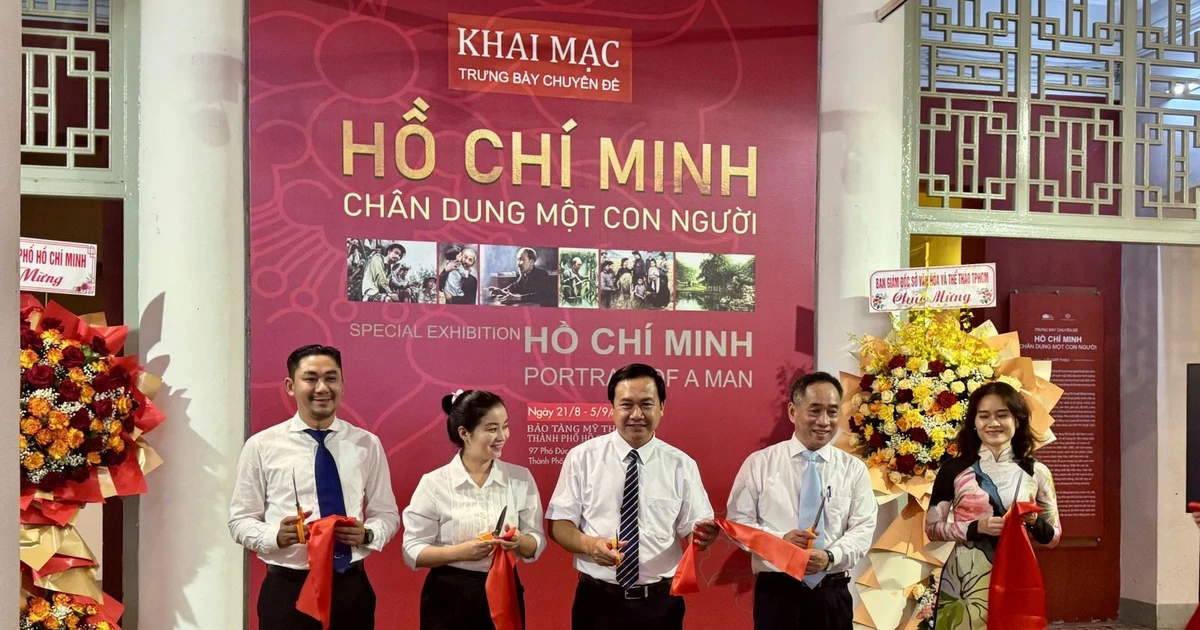Discussing at the parliament the policy of implementing the North-South high-speed railway project, many delegates suggested ordering domestic enterprises to participate and using capital from the people.
Promoting people's power
Giving comments at the conference hall, delegate Ha Duc Minh ( Lao Cai delegation) said that the North-South high-speed railway project requires the largest investment ever, estimated at more than 67 billion USD.
According to the analysis in the Government 's report, we currently have very good room for capital mobilization and public debt safety. The allowable public debt ceiling is 60%, but in reality we are currently only at 37%, so there is still room for 23%.

Delegate Ha Duc Minh (Lao Cai delegation) spoke at the hall.
The delegate said that although we have many options for borrowing to invest in projects, we first need to mobilize maximum resources from the people.
To do this, it is necessary to first raise awareness and build people's confidence in the importance and great benefits that this railway line brings. From there, the Government has a specific plan to attract capital from the people.
Delegates from Lao Cai suggested that it is possible to attract capital from the people through the issuance of government bonds with attractive interest rates, ensuring safety to encourage people to participate.
"Thus, not only does it promote the people's strength in mobilizing financial resources, but it also arouses the pride, solidarity and responsibility of each citizen for the sustainable development of the country," said Mr. Minh.
Quoting the General Secretary 's speech, the high-speed railway project is a particularly important project for national development, contributing to raising the nation's position and fortune in the era of national growth.
Therefore, the delegates suggested that it is necessary to be determined to speed up the completion process earlier. If it can be completed by 2030, it will be meaningful and an important milestone when our Party turns 100 years old. Not only that, it will also save tens of billions of USD, avoiding the situation of capital increase causing loss and waste of investment resources.
To do this, delegate Minh said, there needs to be specific mechanisms and policies to cut down and shorten implementation time.
Delegates proposed one of the important mechanisms, which is to appoint contractors, selecting large domestic corporations with experience and capacity to assign tasks.
However, the criteria for bidding must also be strictly implemented, especially the contractor must demonstrate capacity, ensuring better, cheaper and faster results.
"When we can do this, not only can we be assured of the progress and quality of the project, but we can also build large, world-class corporations, contributing to building a solid foundation for the country's economic development and political stability," delegate Minh shared.
"Assigning tasks and assigning work" to private individuals
Delegate Nguyen Van Than (Thai Binh Delegation) also It is recommended to focus on 3 economic sectors, in which priority is given to the private economy to participate in the construction of the North-South high-speed railway project.
He said that if so, it could help save 30% compared to the state economic sector because, according to him, the level of large enterprises and small/medium enterprises is different from before.
"If the questions are given seriously and fairly, private enterprises can absolutely do it," Mr. Than affirmed.

Delegate Nguyen Van Than (Thai Binh delegation) gave comments at the parliament.
According to the Thai Binh delegation, when large enterprises participate in a project, they need to follow the spirit of hiring independent designers unrelated to the bid, even if the cost is expensive.
"The Government sets out a problem with private enterprises through specific contracts, paying on time, and certainly Vietnamese private enterprises can completely do it. What is lacking, enterprises will proactively pay to rent abroad, and the Government will only inspect, supervise, and pay," said delegate Than.
If domestic enterprises are mobilized, it will create positive effects with a win-win spirit and certainly will not prolong the implementation time.
Therefore, the delegate suggested including this proposal to order private enterprises in the resolution and not just write about creating conditions for non-state enterprises but assigning work to avoid group interests.
Regarding capital, delegates also said that it is necessary to try to limit foreign capital sources as much as possible, and should use capital from the people with attractive interest rates.
"If the Government guarantees, it can be done," Mr. Than said.
Regarding the proposal to mobilize domestic capital, delegate Dinh Thi Phuong Lan (Quang Ngai delegation) suggested to negotiate firmly and cautiously with foreign capital sources and to increase the domestic debt structure. Priority should be given to issuing long-term bonds and increasing contributions from people and businesses through direct contributions or non-budgetary state financial funds.
Mobilizing endogenous power
Also emphasizing that the main source of capital should be government bonds, delegate Hoang Thi Thanh Thuy (Tay Ninh delegation) said: "This both mobilizes internal strength and avoids foreign dependence. If the project implementation time can be reduced, interest rates can also be reduced."
Commenting further on technology, Ms. Thuy pointed out that in the world, Germany, Italy, Japan, and France are countries that have developed and mastered high-speed rail technology. Spain and China have both received technology transfer and are moving towards mastering the technology.

Delegate Hoang Thi Thanh Thuy (Tay Ninh delegation) emphasized that government bond capital should be used mainly.
"It can be seen that in the world, there are 4 countries that possess original technology, and 2 developed countries, then achieved many outstanding achievements in technology.
We should choose technology not based on price, but on technology transfer and be ready to support Vietnam in modernizing its railway industry," said Ms. Thuy.
Regarding the project implementation and completion time, Ms. Thuy said that it is necessary to take shortcuts and shorten the time.
"With lessons learned from 22 countries that have implemented this and technology developing rapidly today, we can completely take shortcuts and shorten project implementation time.
Looking back at the implementation of high-speed railway projects in various countries, we can see that the common point is that the project preparation time is long, but the construction progress is very fast. This shows that the project preparation process needs to be taken seriously, considering resources and influencing factors.
Therefore, I propose to study reducing the project implementation time to less than 10 years with the spirit of careful project preparation but lightning-fast project implementation," Ms. Thuy said.
Source: https://www.baogiaothong.vn/dat-bai-giao-viec-cho-tu-nhan-tham-gia-duong-sat-toc-do-cao-192241120172110676.htm



























![[Photo] An Phu intersection project connecting Ho Chi Minh City-Long Thanh-Dau Giay expressway behind schedule](https://vstatic.vietnam.vn/vietnam/resource/IMAGE/2025/8/21/1ad80e9dd8944150bb72e6c49ecc7e08)




































![[Photo] Politburo works with the Standing Committee of Hanoi Party Committee and Ho Chi Minh City Party Committee](https://vstatic.vietnam.vn/vietnam/resource/IMAGE/2025/8/21/4f3460337a6045e7847d50d38704355d)

































Comment (0)